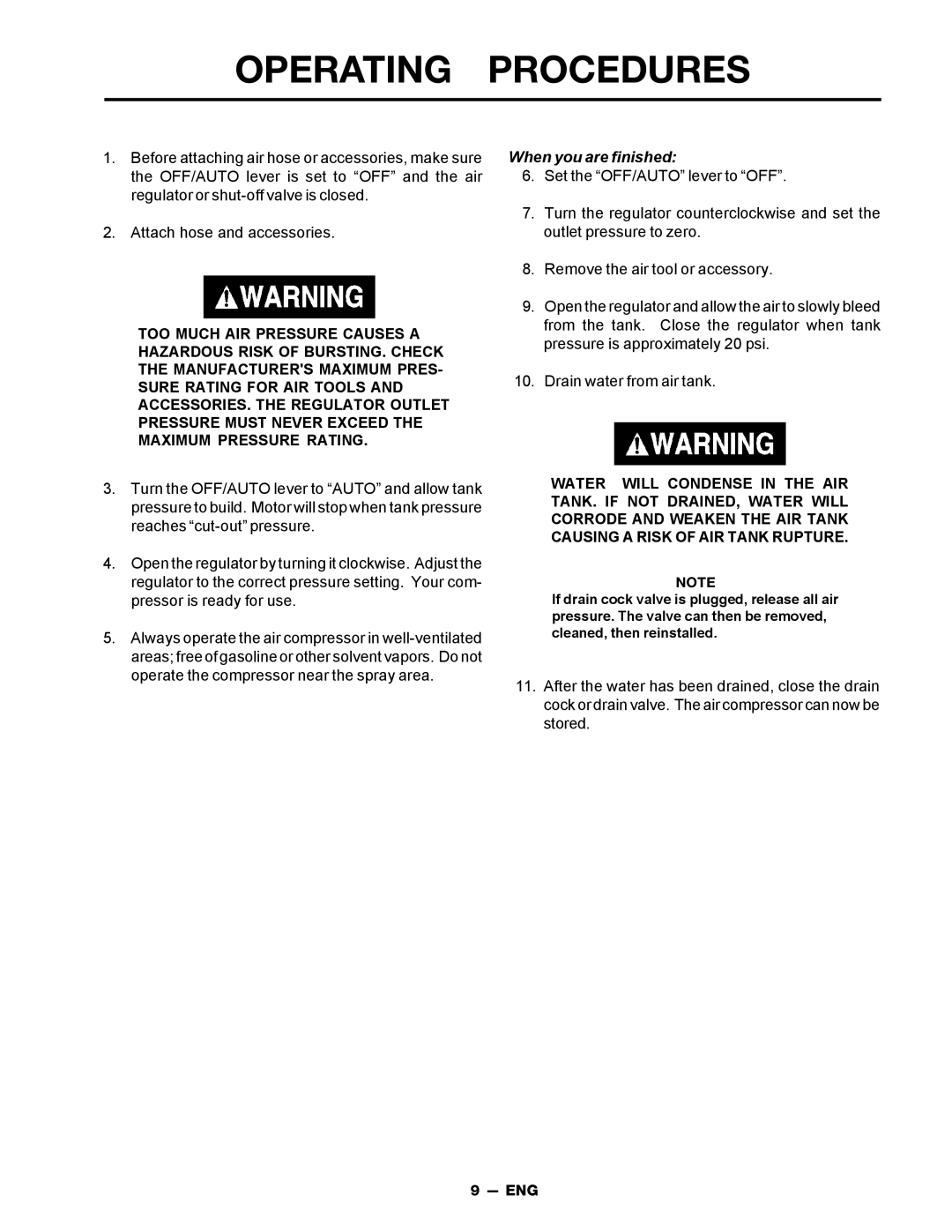
OPERATING PROCEDURES
1.Before attaching air hose or accessories, make sure the OFF/AUTO lever is set to “OFF” and the air regulator or
2.Attach hose and accessories.
TOO MUCH AIR PRESSURE CAUSES A HAZARDOUS RISK OF BURSTING. CHECK THE MANUFACTURER'S MAXIMUM PRES- SURE RATING FOR AIR TOOLS AND ACCESSORIES. THE REGULATOR OUTLET PRESSURE MUST NEVER EXCEED THE MAXIMUM PRESSURE RATING.
When you are finished:
6.Set the “OFF/AUTO” lever to “OFF”.
7.Turn the regulator counterclockwise and set the outlet pressure to zero.
8.Remove the air tool or accessory.
9.Open the regulator and allow the air to slowly bleed from the tank. Close the regulator when tank pressure is approximately 20 psi.
10.Drain water from air tank.
3.Turn the OFF/AUTO lever to “AUTO” and allow tank pressure to build. Motor will stop when tank pressure reaches
4.Open the regulator by turning it clockwise. Adjust the regulator to the correct pressure setting. Your com- pressor is ready for use.
5.Always operate the air compressor in
WATER WILL CONDENSE IN THE AIR TANK. IF NOT DRAINED, WATER WILL CORRODE AND WEAKEN THE AIR TANK CAUSING A RISK OF AIR TANK RUPTURE.
NOTE
If drain cock valve is plugged, release all air pressure. The valve can then be removed, cleaned, then reinstalled.
11.After the water has been drained, close the drain cock or drain valve. The air compressor can now be stored.
9 — ENG
